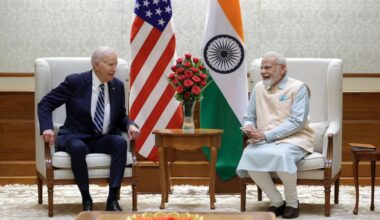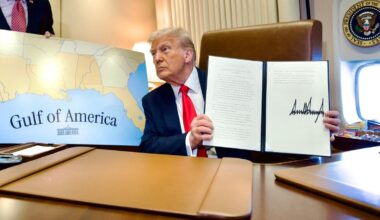US President Donald Trump has stirred controversy once again. This time, his target is Ukrainian President Volodymyr Zelensky. Trump called him a “dictator” in a heated exchange of words. European leaders quickly condemned Trump’s remarks. They labeled them “dangerous” and “absurd.” However, it’s important to understand the broader context of his comments. His stance on Ukraine reflects a more pragmatic approach to American foreign policy.
America First: Trump’s Foreign Policy Principle
Trump’s critique is rooted in one key principle: putting America first. Trump has been a vocal advocate for recalibrating U.S. foreign policy. His focus is on national interests. He has long argued against endless foreign entanglements. His recent comments about Zelensky fit into this larger narrative. Trump highlighted the Ukrainian president’s suspension of elections under martial law. He also accused Zelensky of using U.S. resources for personal gain. This is part of Trump’s broader argument. The U.S. should not be drawn into conflicts that do not directly benefit the American people.
The Suspension of Elections: A Key Point of Contention
Zelensky’s decision to suspend elections is crucial in this debate. Defenders of Zelensky argue that this was necessary due to the ongoing war. However, Trump’s criticism stands. How can a leader fighting for democracy suspend elections? Zelensky claims to fight for democracy, yet suspends the democratic process. By calling Zelensky a “dictator,” Trump challenges this contradiction. Trump questions why foreign leaders should be above reproach, especially when they undermine democratic principles.
The U.S. Investment in Ukraine: A Misalignment of Interests
The U.S. has invested billions of dollars in Ukraine since Russia’s invasion. Despite this, the war continues with no clear end in sight. Trump points out that the U.S. has invested far more in the conflict than Europe. This is another key aspect of his argument. Europe is geographically closer to the conflict and should take the lead in peace negotiations. However, Europe has largely failed to bring about a resolution. Trump’s remark that the war is “far more important to Europe than it is to us” highlights this. The U.S. should not be expected to act as the global peacekeeper when Europe has more at stake.
Accountability and Transparency: A Call for Clarity
Trump’s blunt rhetoric brings up an important issue: accountability. The U.S. has been a strong ally of Ukraine. However, that doesn’t mean the U.S. should ignore questionable actions by Ukrainian leadership. Trump’s remarks about Zelensky’s popularity and accusations of disinformation echo broader concerns in the U.S. Many Americans feel their government is too focused on foreign crises. They believe domestic issues should take priority.
Trump’s Rhetoric: A Desire for Clarity and Results
Trump’s rhetoric may be harsh, but it reflects a desire for clarity. His administration was known for cutting through diplomatic noise. Trump pushed for agreements that prioritized American interests. His criticism of Zelensky follows this approach. Trump believes foreign leaders should be challenged when they act against American principles. He wants a resolution to conflicts that doesn’t drain U.S. resources or strategic interests.
The Need for a Pragmatic Approach to U.S. Involvement
Ultimately, Trump’s stance on Zelensky is not about undermining Ukraine’s sovereignty. It’s about ensuring the U.S. does not get caught in a never-ending conflict. If Europe truly believes in resolving the war, they should take a more active role. Until then, Trump’s calls for a reevaluation of U.S. involvement are reasonable. They are necessary for ensuring the U.S. does not become entangled in a conflict with no clear benefits.










